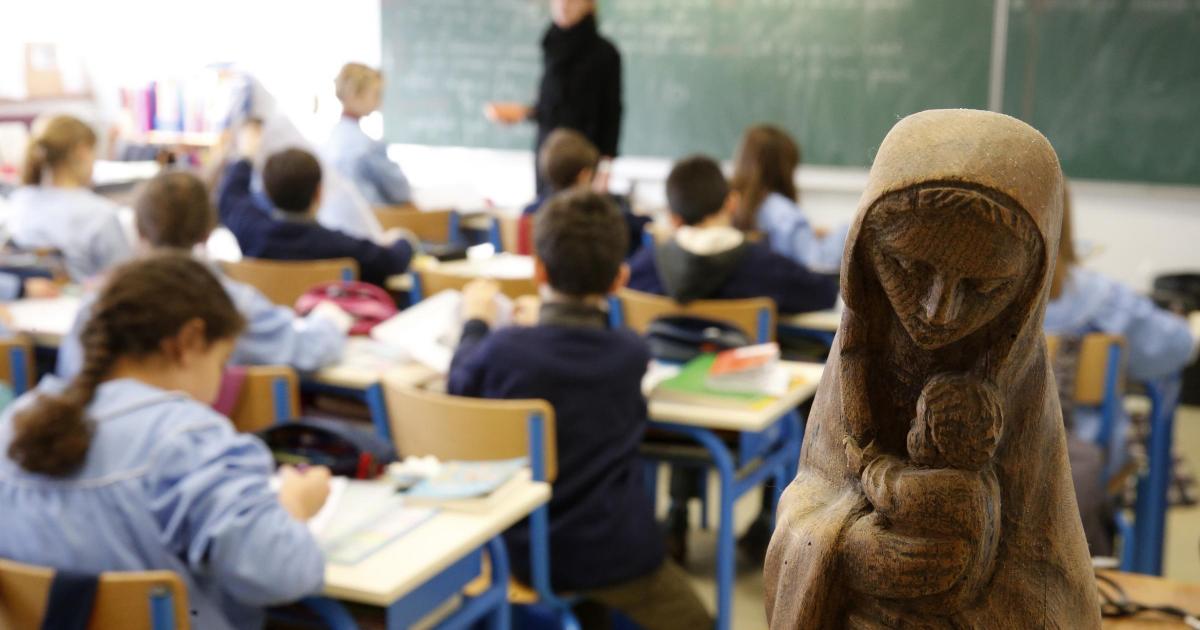
Photos of Jimmy Carter: The life of the 39th president and humanitarian The Washington Post
source

Photos of Jimmy Carter: The life of the 39th president and humanitarian The Washington Post
source

The Detroit Lions’ Week 18 game against the Minnesota Vikings will be for the NFC North crown and the No. 1 seed in the NFC. On Sunday, the NFL made it official that the game will also be in front of a national audience.
Detroit and Minnesota will square off at Ford Field on Sunday Night Football, marking their third appearance on Sunday Night and sixth overall primetime game this season. Detroit is 4-0 in primetime this year, with another game on Monday Night Football against San Francisco in Week 17.
The Vikings are 14-2, while the Lions are 13-2 ahead of their showdown with the 49ers Monday. Their Week 18 game will be the final game of the regular season across the league. Kickoff is set for 8:20 p.m.
The winner of the game will win the division and clinch a first-round bye in the playoffs, which also comes with home-field advantage. Meanwhile, the loser will be seeded fifth and forced to play on the road beginning in the Wild Card round.
Detroit is looking to clinch its second-consecutive division title, while the Vikings are seeking their second in three years. Ironically, the Lions clinched the division last season with a win over the Vikings at U.S. Bank Stadium.
The Lions won the first matchup between the two teams, 31-29, on Oct. 20. The Vikings raced to an early lead in that game, but Detroit used a strong second quarter and a last-second field goal by Jake Bates to steal the road win.
Additional reading
1.) What Vikings Defeating Packers in Week 17 Means For Lions
2.) Roundtable: Jahmyr Gibbs' Role, Evaluating Lions' Defense
3.) Lions Listed as Potential Landing Spot for Dolphins DT Calais Campbell
Sports journalist who has covered the Detroit Lions the past three NFL seasons. Christian brings expert analysis, insights and an ability to fairly assess how the team is performing in a tough NFC North division.
© 2024 ABG-SI LLC – SPORTS ILLUSTRATED IS A REGISTERED TRADEMARK OF ABG-SI LLC. – All Rights Reserved. The content on this site is for entertainment and educational purposes only. Betting and gambling content is intended for individuals 21+ and is based on individual commentators' opinions and not that of Sports Illustrated or its affiliates, licensees and related brands. All picks and predictions are suggestions only and not a guarantee of success or profit. If you or someone you know has a gambling problem, crisis counseling and referral services can be accessed by calling 1-800-GAMBLER.

The TOI City Desk is an indefatigable team of journalists dedicated to bringing you the pulse of cities from across the nation, all day and all night. Our mission is to curate, report, and deliver city news that matters to readers of The Times of India. With a keen focus on urban life, governance, culture, and local issues, we provide a comprehensive view of the ever-evolving cityscapes. Our team works tirelessly to keep readers informed about the latest developments, ensuring that they are connected to the heartbeat of cities across India, right when it happens. The TOI City Desk is a trusted source for staying in touch with the local stories that shape your world.
How to make spicy Chicken Seek Kebabs at home
10 tips to make a healthy Pizza at home
10 national parks in India for an unforgettable New Year adventure
5 veggies one can easily grow in the balcony garden with ease (and how)
8 Interesting South Indian recipes that are worth trying
How to make South Indian-style Chicken Coconut Curry
10 oldest temples in India to visit for New Year’s blessings
10 diet habits to cleanse the liver
10 animals to see in Gir National Park other than Asiatic lions
How to use Coconut Milk to increase hair growth

The Future of Democracy and Education Diplomacy in South Asia Modern Diplomacy
source

overcast clouds
The global health environment in 2024 is shaped by a combination of ongoing challenges, emerging health threats, and advancements in healthcare. These factors affect populations across the world differently, depending on geographic location, socioeconomic status, and access to healthcare. Below is an analysis of the current state of the global health environment and its impact on populations globally.
The current state of the global health environment has mixed outcomes depending on the region, socioeconomic factors, and health infrastructure. The impact of health challenges such as chronic diseases, mental health issues, infectious diseases, and environmental health risks disproportionately affects vulnerable populations, particularly in low-income countries. The rising burden of non-communicable diseases (NCDs) and mental health conditions calls for comprehensive public health responses that emphasise prevention, treatment, and access to healthcare services.
On the positive side, advancements in healthcare technology, global health initiatives, and international collaboration offer hope for addressing some of these challenges. However, for progress to be sustained, global health systems must prioritise equity, strengthen health systems, and focus on addressing the root causes of health inequalities.
.
Health is a state of complete physical, mental, and social well-being, and disease control refers to the efforts taken to prevent, reduce, and manage diseases. These efforts can be divided into several key categories:
Preventing diseases before they happen is one of the most effective strategies in controlling disease. Preventive measures include:
Diseases like malaria, dengue, and Zika virus are transmitted through vectors, such as mosquitoes. Vector control involves measures like:
For existing diseases, proper treatment and management are crucial:
Monitoring disease outbreaks, both locally and globally, allows authorities to act quickly and contain outbreaks:
Environmental factors such as pollution, climate change, and urbanisation have a direct impact on health. Managing environmental health involves:
Antimicrobial resistance occurs when bacteria, viruses, and other pathogens become resistant to the drugs used to treat them. To control AMR:
Socioeconomic factors—such as income, education, access to healthcare, and living conditions—affect health outcomes. Addressing these determinants can improve overall health and reduce disease burden.
Governments and organisations implement policies and laws to control diseases. These may include:
By focusing on these areas, society can significantly reduce the spread of diseases and improve overall public health.

Sign up to get LondonDaily.News delivered to your inbox.
It’s a London thing…

THE Scottish Government is consulting on a minor adjustment to parental rights concerning the withdrawal of young people from religious observance and education.
Parents have held the right to withdraw their children from religious observance for more than 150 years. There is no proposal to allow children to decide whether to opt out – rather, the Government aims to give them a “voice” on the topic.
Conspiratorial whispers suggesting a deep-state-style agenda to abolish Catholic schools by “weaponising children’s rights” border on paranoia.
READ MORE: Ruth Watson: Learning to love vegetables can be child’s play
As a teacher, I am well-versed in the UN Convention on the Rights of the Child. The 54 articles include rights such as the right to play, the right to an education and the right to be protected from abuse
Also included are the rights to freedom of thought, belief, and religion. Article 14 states that: “Every child has the right to think and believe what they choose and also to practise their religion.”
Surely, these rights apply to all children, not just Christians? The consultation addresses withdrawal from religious education and that is something I am uncertain about.
When taught impartially, religious education can offer valuable opportunities for children to understand those who are different and explore their own beliefs.
Lessons on Islam and Judaism have been particularly important in challenging hate directed towards minority groups. However, even the non-denominational religious education curriculum centres on Christianity, labelling the rest as “world religions”, implying they are less relevant to Scottish society.
There is also a lack of acknowledgment for other belief systems, such as atheism and humanism. Given that the Scottish census highlights our increasingly secular society, with spiritual paths such as Paganism gaining popularity, aren’t other beliefs worthy of respect?

I come from a mixed Catholic and Protestant family but Christianity played no significant role in my home life. As I grew older, I became increasingly uncomfortable with prayer in school, feeling as though I was talking to myself. This dilemma resurfaced when I became a teacher.
Christian worship is still a fixture even in non-denominational schools and I often wonder whether any other jobs compel atheists to attend church services and participate in prayer.
Even as an adult, the pressure to conform to this can be substantial. Is it fair to impose this on children?
Over the years, many children have told me they do not believe in God or prefer other ideologies, such as Buddhism, and do not wish to be compelled to pray.
Some find religious observance a waste of time or simply boring. Others have expressed that hymns upset them, questioning why a loving God would allow suffering.
READ MORE: Scots to elect large pro-independence majority in 2026 Holyrood vote, poll finds
As a teacher, my hands are tied unless parents specifically request a withdrawal. And what about those who are withdrawn? Are they given meaningful alternatives or just supervised?
While many children enjoy attending churches for end-of-term services, we can surely do better than this homogeneous approach.
It is disappointing that the consultation is not about giving children themselves the right to withdraw from religious observance, as this discussion is long overdue.
How committed are we to freedom of – and freedom from – religion?
We know there are thousands of National readers who want to debate, argue and go back and forth in the comments section of our stories. We’ve got the most informed readers in Scotland, asking each other the big questions about the future of our country.
Unfortunately, though, these important debates are being spoiled by a vocal minority of trolls who aren’t really interested in the issues, try to derail the conversations, register under fake names, and post vile abuse.
So that’s why we’ve decided to make the ability to comment only available to our paying subscribers. That way, all the trolls who post abuse on our website will have to pay if they want to join the debate – and risk a permanent ban from the account that they subscribe with.
The conversation will go back to what it should be about – people who care passionately about the issues, but disagree constructively on what we should do about them. Let’s get that debate started!
Callum Baird, Editor of The National
We want our comments to be a lively and valuable part of our community – a place where readers can debate and engage with the most important local issues. The ability to comment on our stories is a privilege, not a right, however, and that privilege may be withdrawn if it is abused or misused.
Please report any comments that break our rules.
This website and associated newspapers adhere to the Independent Press Standards Organisation’s Editors’ Code of Practice. If you have a complaint about the editorial content which relates to inaccuracy or intrusion, then please contact the editor here. If you are dissatisfied with the response provided you can contact IPSO here
© 2001-2024. Newsquest Media Group Ltd, 1st Floor, Chartist Tower, Upper Dock Street, Newport, Wales, NP20 1DW | 01676637 |
Data returned from the Piano ‘meterActive/meterExpired’ callback event.
As a subscriber, you are shown 80% less display advertising when reading our articles.
Those ads you do see are predominantly from local businesses promoting local services.
These adverts enable local businesses to get in front of their target audience – the local community.
It is important that we continue to promote these adverts as our local businesses need as much support as possible during these challenging times.

Protectt.ai has revealed their perspectives on Mobile App and Mobile API Security trends in 2025.

Mobile Apps Security Paradigm Shift
The mobile-first era isn’t just upon us; it’s reshaping the very fabric of how we interact with technology. As businesses accelerate their mobile initiatives, we’re witnessing a seismic shift in the security landscape. Safeguarding Mobile Apps and their underlying APIs is no longer optional—it’s a critical mandate for modern businesses. This guide explores the emerging challenges and strategic solutions CISOs need to implement to fortify Mobile App and Mobile API security, ensuring resilience in a rapidly evolving threat landscape.
The Evolving Threat Landscape
By commenting, you agree to the Prohibited Content Policy
By commenting, you agree to the Prohibited Content Policy
News
See whats happening in IT Security sector right now
Exclusive
Read and get insights from specially curated unique stories from editorial
Leaders Speak
Business leaders sharing their insights
Events
Explore and discuss challenges & trends in India’s leading B2B events
Webinars
Join leaders & experts for roundtables, conferences, panels and discussions
Subscribe to our Daily Newsletter
By continuing you agree to our Privacy Policy & Terms & Conditions
Advertise With Us
We have various options to advertise with us including Events, Advertorials, Banners, Mailers, etc.
Download ETCISO App
Save your favourite articles with seamless reading experience
Get updates on your preferred social platform
Follow us for the latest news, insider access to events and more.
About Us
Contact Us
Newsletters

The government has begun initiatives to issue identity cards to individuals and families of Nepali origin who have lived abroad for generations. Separate identity cards are being proposed for foreign nationals of Nepali origin who do not fall under the definition of a Non-Resident Nepali.
The Ministry of Law has initiated discussions on amending the Non-Resident Nepali Act, 2007, to facilitate this.
Currently, a law provides Non-Resident Nepali Citizenship with limited rights for Non-Resident Nepalis. According to Law Minister Ajay Kumar Chaurasiya, the government has initiated work to make laws to issue identity cards to foreign nationals of Nepali origin who have been residing in various countries for generations. Nepali-speaking communities in Thailand, Malaysia, Myanmar, and Fiji have advocated for these identity cards.
During the inauguration of the Non-Resident Nepali Global Conclave in Kathmandu on October 27 and 28, Prime Minister KP Sharma Oli expressed the government’s positive view towards the long-standing demands of Nepali-origin individuals living abroad for generations.
“These individuals wish to live with the dignity of being recognised as Nepalis,” said Oli. “They are not making major demands. All they seek is a dignified life with recognition of their Nepali heritage. Why hesitate over such a straightforward request? Let us work together to address this.”
The Non-Resident Nepali Act recognises foreign nationals of Nepali origin only if their families migrated abroad (excluding SAARC countries) at least three generations ago. The Act allows the government to issue identity cards to such individuals. Additionally, the Citizenship Act enables them to obtain Non-Resident Nepali citizenship, granting limited economic, social, and cultural rights.
However, the descendants of those who left Nepal a century or two ago are not recognised under the Non-Resident Nepali Act.
Kumar Karki, a Nepali-origin Thai, said his family migrated from Nepal to Myanmar around 120 years ago and later settled in Thailand.
“We are Nepali, and wherever we have lived, we have passed down the Nepali language, culture, and traditions from generation to generation. People in the places we live recognise us as Nepali or Gorkhali,” he said. “We want to remain connected to Nepal. We request that the Nepal government provide us with an identification card.”
He expressed frustration that the Non-Resident Nepali Act does not cover them. According to Karki, there are descendants of Nepali people who migrated generations ago to countries including Myanmar, Thailand, Malaysia, Brunei, Mauritius, and Fiji. “All we are asking is for the government of Nepal to recognise us as Nepali. We are not asking for any rights or citizenship,” he said.
He added that although many Nepalis have been residing in various countries for generations and have become citizens there, the respective countries still identify them as Gurkhas or Nepali on their identification documents.
Mishra is the Delhi Bureau Chief of The Kathmandu Post and Kantipur Daily.